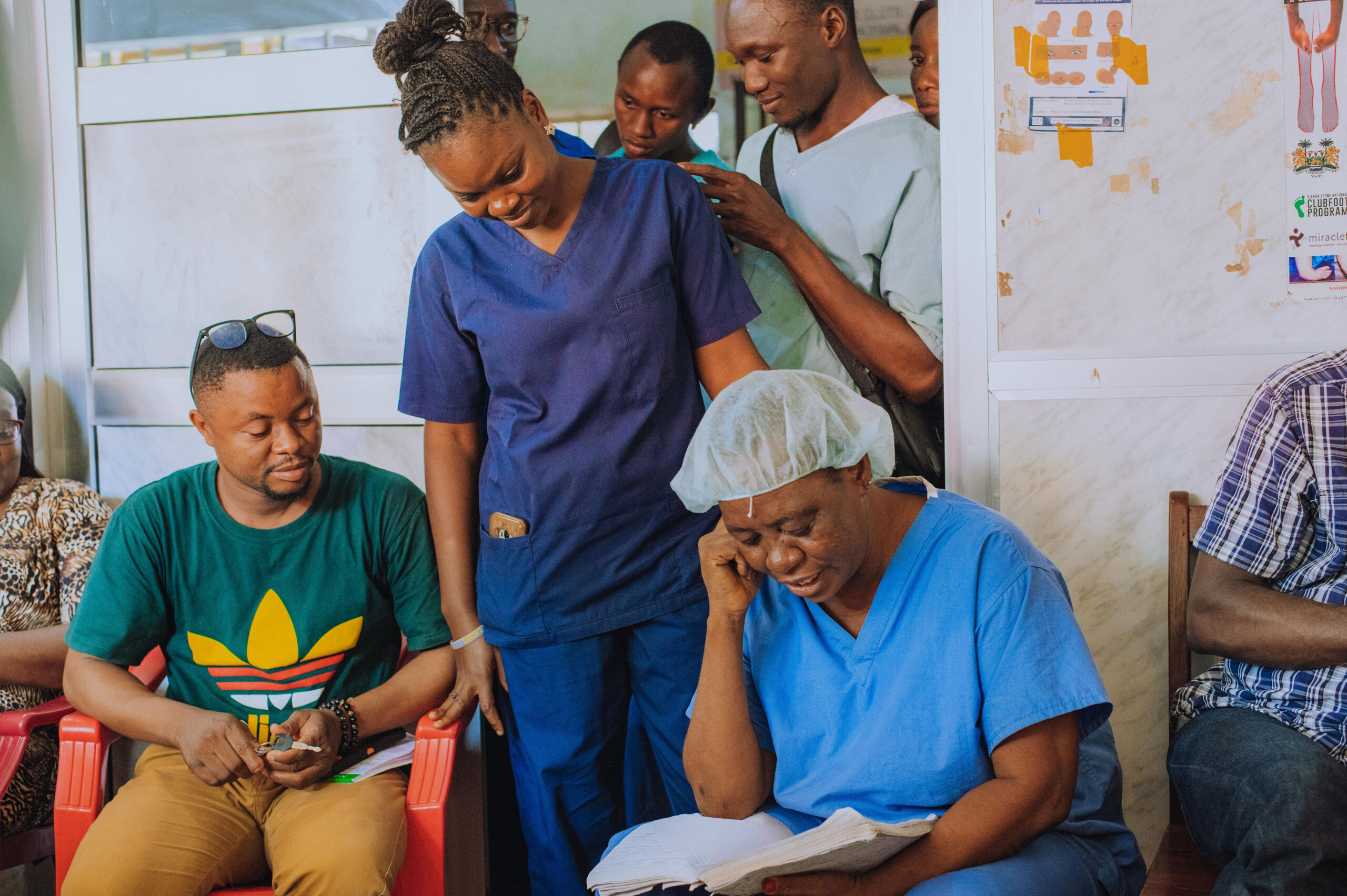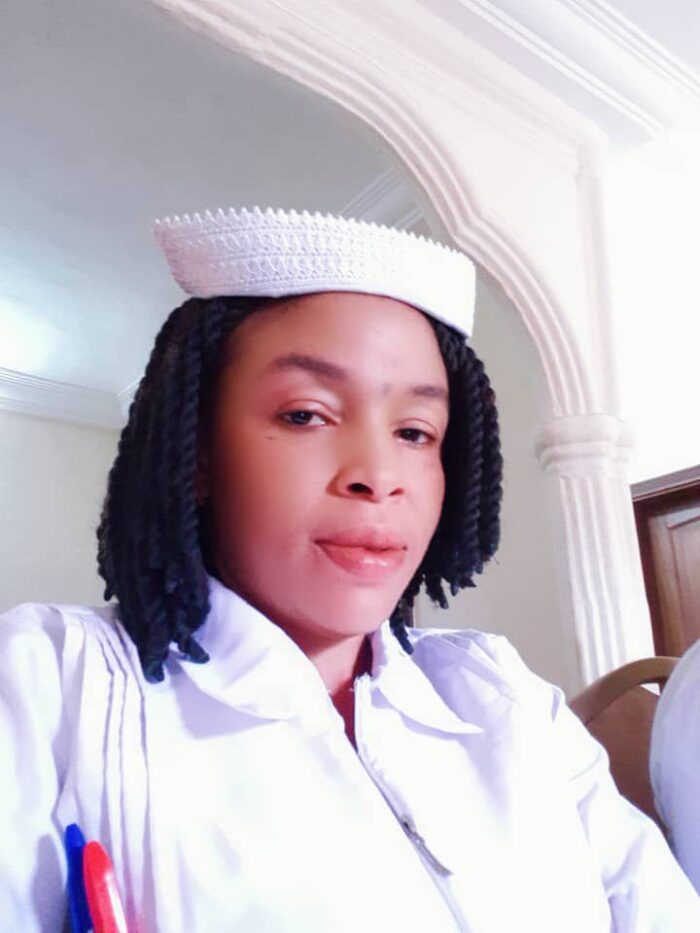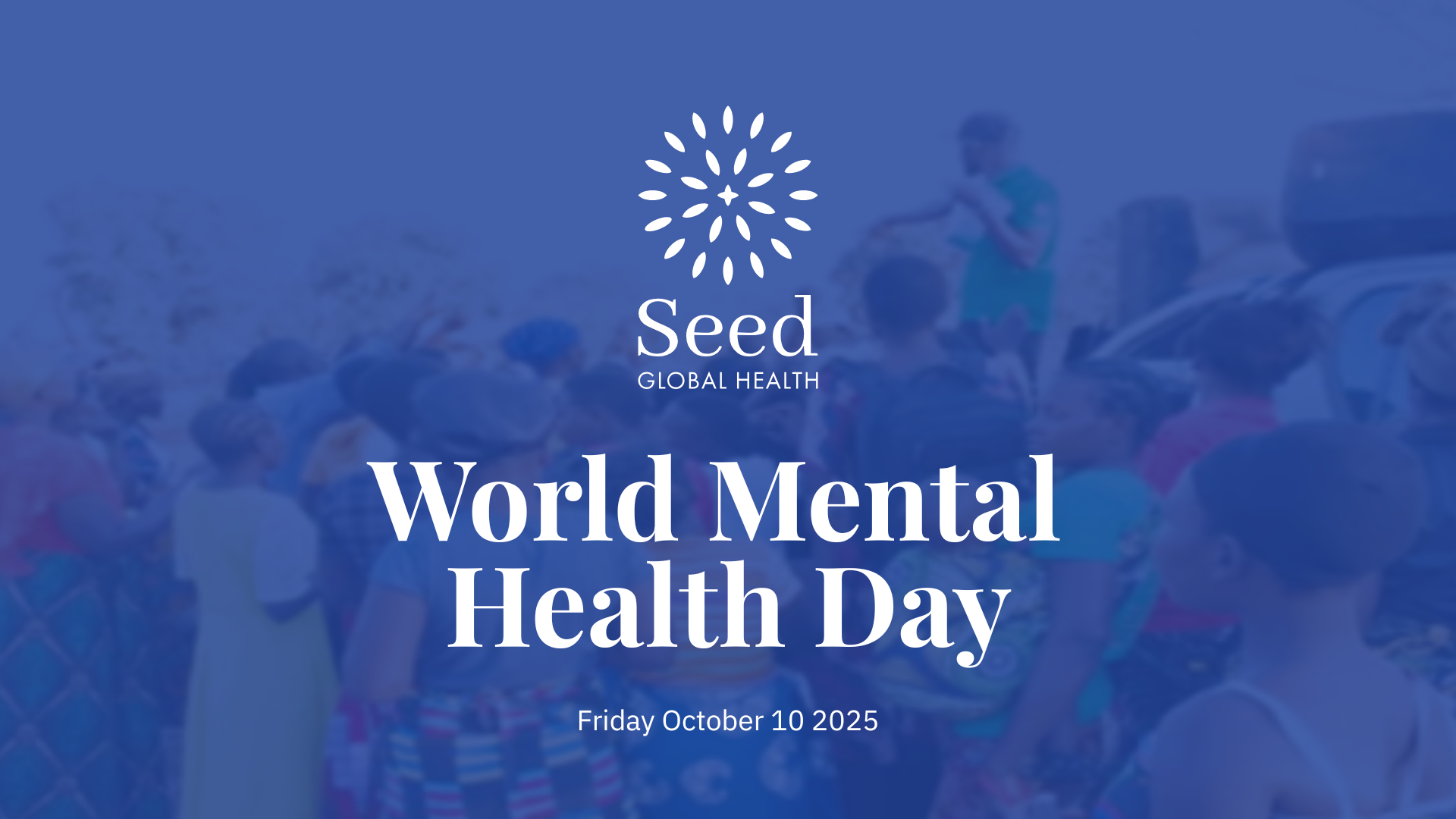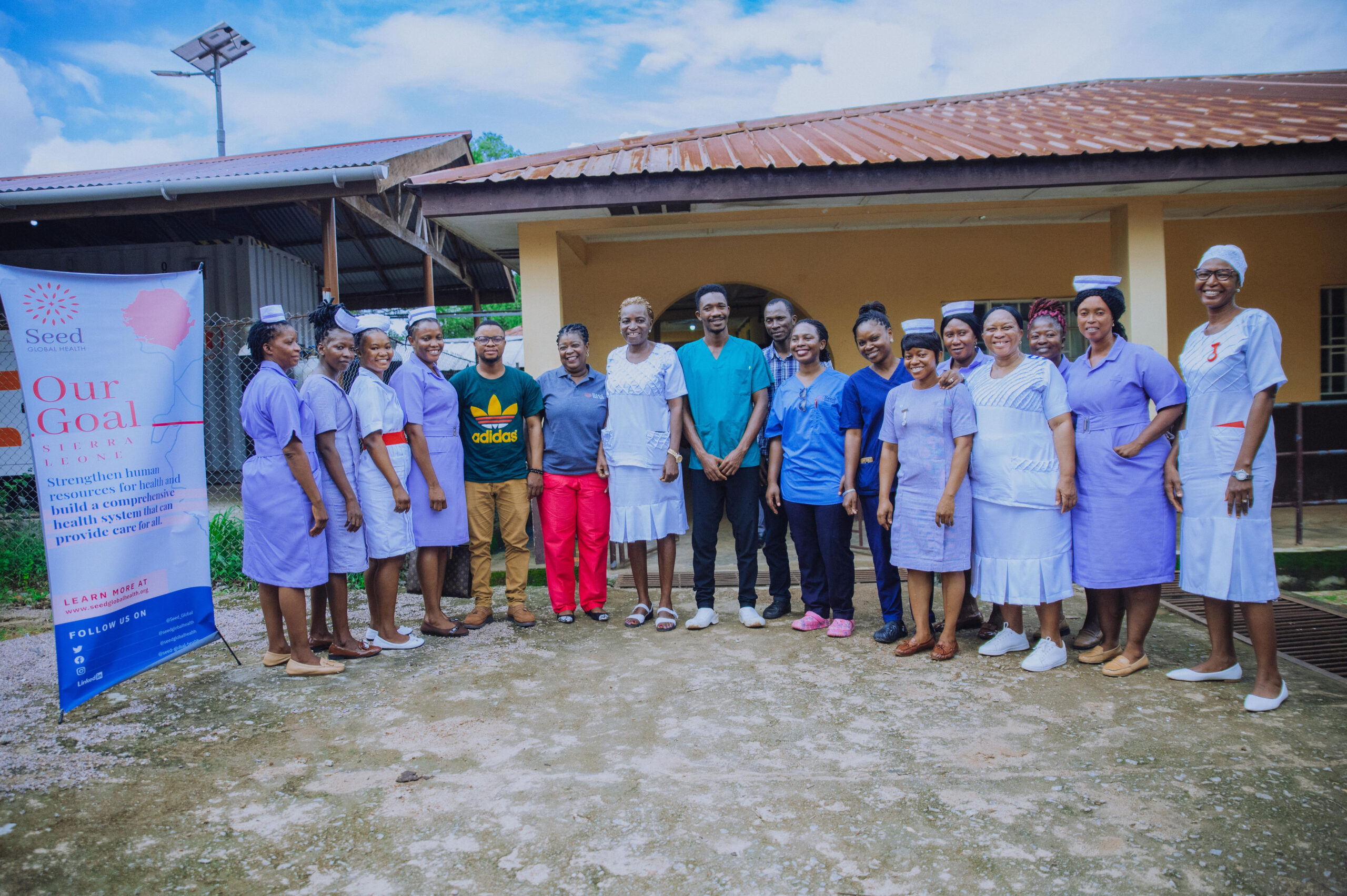
Morning Huddles and WhatsApp are Saving Maternal Lives in Sierra Leone
At Makeni Regional Referral Hospital, a quiet but crucial ritual unfolds each morning in the maternity ward. A group of dedicated health workers gathers for a morning huddle—not just a routine meeting, but a lifeline for providing maternal health care in a resource-limited setting. These daily strategy sessions are helping to save lives.
Improving Communication to Save Lives
Each morning, the maternity care team at Makeni discusses patient cases, identifies challenges, and plans for the day ahead. This multidisciplinary team includes not just midwives and nurses, but also other key health workers like lab technicians and pharmacists. One midwife highlighted how these huddles have improved communication and collaboration:
“The lab attendant is part of the morning huddle team. Now, they understand the urgency when we rush to them for emergency blood for a mom with postpartum hemorrhage. Before, without teamwork, there was doubt and delay.”
Maternal mortality remains a critical issue globally, with nearly 800 women dying each day from complications related to pregnancy or childbirth. In Sub-Saharan Africa, the situation is exacerbated by challenges such as hemorrhage, infections, and pre-eclampsia, as well as delays in accessing care, a lack of sufficient healthcare workers, and shortages of essential supplies.
A 2021 needs assessment by Seed Global Health and the Sierra Leone Ministry of Health identified poor communication and lack of teamwork among health workers as major barriers to effective maternal care. To address these gaps, the maternity care teams at Bo Government Hospital and Makeni Regional Referral Hospital, in partnership with Seed, introduced new communication practices like morning huddles and the use of WhatsApp groups.
Sister Mary Palmer: Leading Change with New Tools
Sister Mary Palmer, a supervisory midwife at Makeni, has seen firsthand how these changes have transformed care. Her day now involves coordinating patient care through WhatsApp, ensuring timely responses to medical needs.

For instance, when a patient began convulsing due to a lack of magnesium sulfate one night, Sister Mary immediately alerted her WhatsApp group. “Everyone started to search other hospital units, and we found the medication in time to stabilize the patient,” she recalls.
To further strengthen communication, Seed also introduced the Situation, Background, Assessment, and Recommendation (SBAR) tool and the Subjective, Objective, Assessment, and Plan (SOAP) note. These tools help health workers provide clear, structured patient information, improving both oral and written communication.
WhatsApp Groups: A Game-Changer for Real-Time Communication
In addition to these tools, WhatsApp has become a game-changer. WhatsApp groups have been created for different needs: one for midwives on call, another for all maternity ward staff, and even a group that includes doctors, nurses, surgical techs, anesthetists, pharmacists, blood bank technicians, and lab technicians. These groups allow quick, real-time communication about patient referrals, emergencies, and resource needs.
One critical example involved finding a blood donor. “A patient needed a blood transfusion,” Sister Mary explained. “I went on the WhatsApp group and kept giving updates. People in the group started looking for someone with the right blood type, and we found a donor in time to save her.”
Building a Culture of Teamwork and Communication
These interventions have shifted the culture from isolated practice to collaborative care. Clinicians now call on colleagues for help, rely on each other’s expertise, and collectively share responsibility for patient outcomes. The teams at Bo and Makeni hospitals have shown that collaboration and communication are key to saving lives and improving maternal health care in Sierra Leone.

